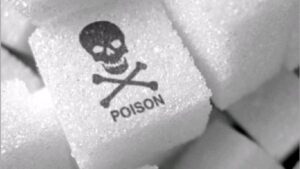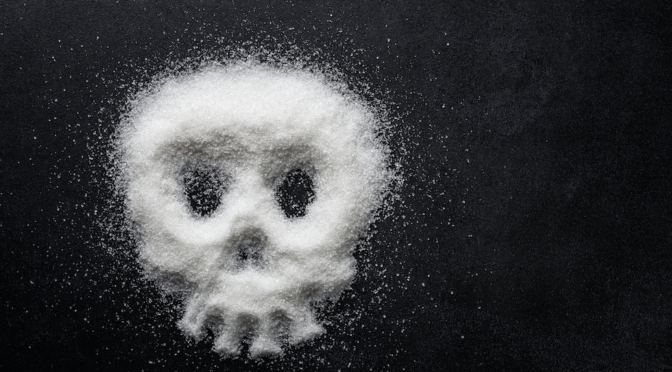In our daily lives we hear more and more about the dangers of sugar, specially refined white sugars. But let’s be honest, everyone has at least that one naughty sweet they crave so now and again. I am not talking about the people that in some miracle way managed to say goodbye forever to sugar, I know you people are out there and I applaud you! Nope I’m talking about the ones that still like that deviliciousness. There are people that keep it to that one snack but others will eat sugars without boundaries. Sodas, sweets, junk food etc.
Where do we find that boundary? When do we eat too much sugar? Here are 6 clear signs for you that can maybe answer that question.
1. Your stomach never feels full
Recognize the feeling of eating until the package is empty? You start with only one cookie. Before you know it, the one turned into 10.
Food that contains a lot of sugars but lacks protein, fibers and other nutrients will not make you feel full.
Sugars don’t, like other nutrients do, pass the message to your brain that you actually just ate something. This way you can eat a lot more than usual.
2. Your skin is breaking out more than usual
Too many sugars is an attack on your skin. A study in the Journal of the Academy of Nutrition and Dietetics suggests a link between a high-sugar diet and the severity of acne.
If you find yourself in front of the mirror, wondering where all those pimples come from. Think if it had maybe something to do with that delicious triple chocolate cake you couldn’t resist.
3. You experience a lot more fatigue
If your breakfast or lunch is stacked with sugars and lacking those important nutrients like protein, fibers and fat. Chances are big you will find yourself stuck in a midday energy slump. Sometimes even accompanied by a pounding headache and the urge to wrap yourself in a blanket and jump in bed. A balanced and nutritious diet prevents your blood sugar from going from a sugary high to a lethargic low. In other words, your energy levels will stay stable.
 4. You have a high blood pressure
4. You have a high blood pressure
Your blood pressure is considered normal if it is 120/80 or lower. A high-sugar diet can push your blood pressure over this threshold. Medical experts even argue that limiting sugar intake is even more important than reducing sodium consumption, when it comes to blood pressure.
5. You collapse after working out
Fueling your body in a proper way is essential if you are going to work out. The moment you notice an exercise seems to be getting harder, a high-sugar diet might be to blame.
When you raise your blood sugars eating a snack which contains high amounts of sugar, It can give you a energy boost, but it won’t last long.
This energy is false energy because your body burns it straight away. Your energy level will drop to a lower level than it was before the intake. This will cause an entire collapse during or just after working out.
 6. You feel more down than usual
6. You feel more down than usual
Different studies show that there is a link between the intake of sugar and the risk of getting depressed. A high-sugar diet spikes levels of inflammation throughout the body, which is also linked to higher levels of depression, according to Prevention.com. A diet high in simple sugars from carbohydrates is also associated with depression.
“Using data from the Women’s Health Initiative—which is tracking more than 70,000 women—the researchers found that the higher a woman’s blood sugar rose after eating sugar and refined grains, the higher her risk of depression,“ the site reported. The reverse was also true: A diet rich in whole grains was associated with a lower risk of depression.
Ask yourself; ‘ Is it worth all of this?’ That is something only you can answer yourself.
Source:

